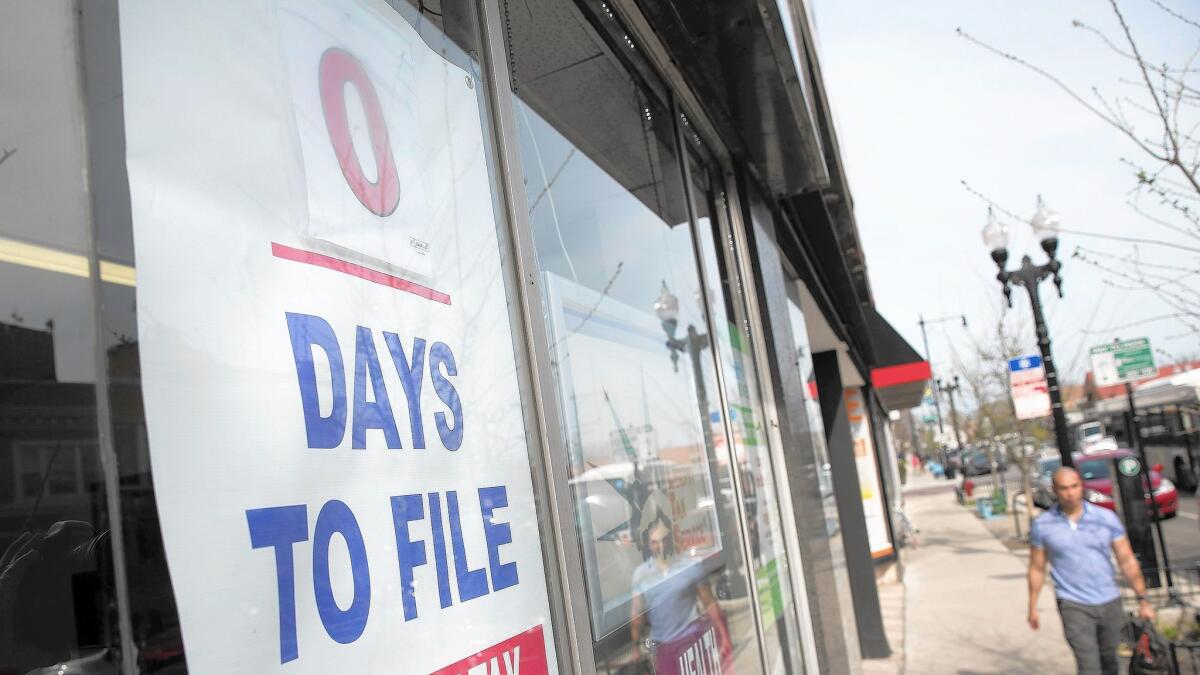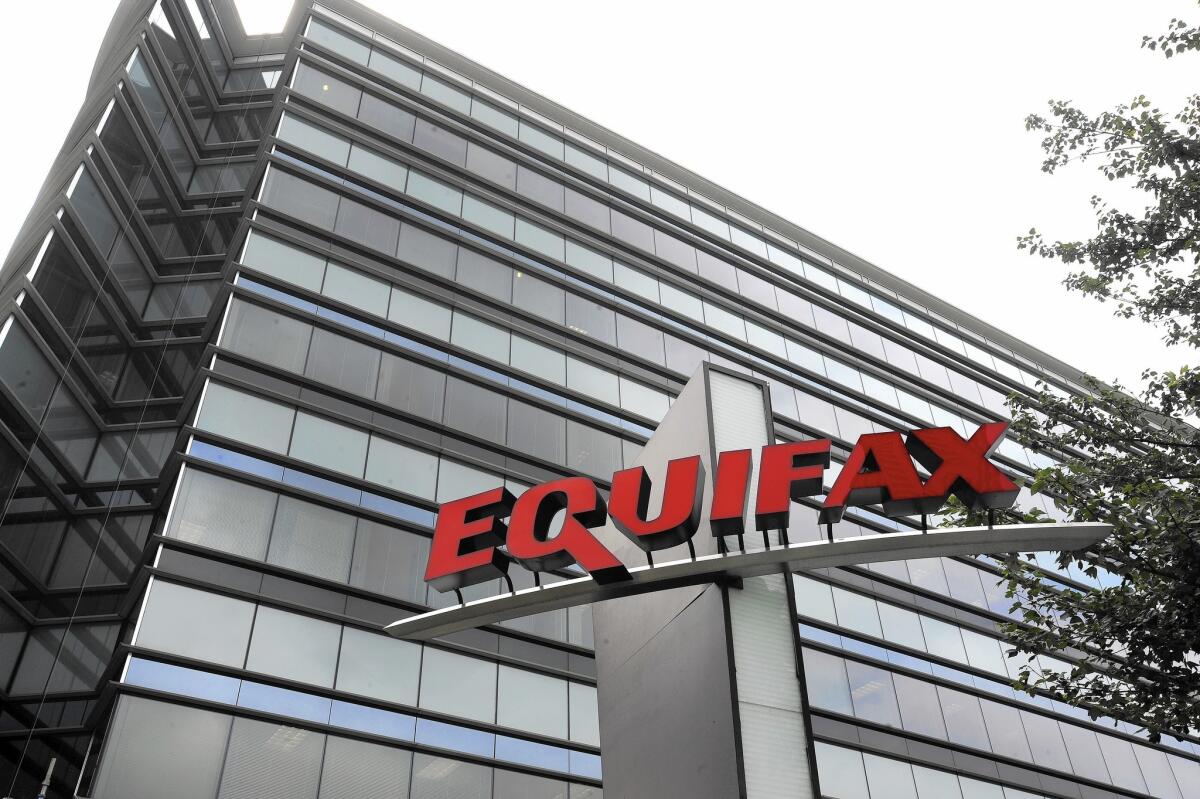Saving for retirement also means planning for the tax hit

- Share via
Dear Liz: I’m 40. We own our house and have a young daughter. Through my current employer, I’m able to contribute to a regular 401(k) and also a Roth 401(k) retirement account. My company matches 3% if we contribute a total of 6% or more of our salaries. Are there any reasons I should contribute to both my 401(k) and Roth, or should I contribute only to my Roth? My salary and bonus is around $80,000 and I have about $150,000 in my 401(k) and about $30,000 in my Roth. Thanks very much for your time.
Answer: A Roth contribution is essentially a bet that your tax rate in retirement will be the same or higher than it is currently. You’re giving up a tax break now, because Roth contributions aren’t deductible, to get one later, because Roth withdrawals in retirement are tax free.
Most retirees see their tax rates drop in retirement, so they’re better off contributing to a regular 401(k) and getting the tax deduction sooner rather than later. The exceptions tend to be wealthier people and those who are good savers. The latter can find themselves with so much in their retirement accounts that their required minimum distributions — the withdrawals people must take from most retirement accounts after they’re 70½ — push them into higher tax brackets.
That’s why many financial planners suggest their clients put money in different tax “buckets” so they’re better able to control their tax bills in retirement. Those buckets might include regular retirement savings, Roth accounts and perhaps taxable accounts as well. Roths have the added advantage of not having required minimum distributions, so unneeded money can be passed along to your daughter.
Given that you’re slightly behind on retirement savings — Fidelity Investments recommends you have three times your salary saved by age 40 — you might want to put most of your contributions into the regular 401(k) because the tax break will make it easier to save. You can hedge your bets by putting some money into the Roth 401(k), but not the majority of your contributions.

How to protect your financial data in the wake of the Equifax breach
Dear Liz: Do I have the right to notify the credit bureaus that I do not want any of my financial information stored in their files? They don’t seem to be that secure. I rarely borrow money and the three financial institutions I deal with have all the data they need to lend me money if I need some. I do finance a car on occasion, because if they want to lend me money at less than 1%, why not?
Answer: The short answer is no, you have no right to stop credit bureaus from collecting information about you. You also can’t prevent them from selling that information or keeping it in inadequately secured databases.
One thing you can do is to freeze your credit reports at all three bureaus to prevent criminals from using purloined information to open credit accounts in your name. But that will cost you.
The only bureau currently waiving the typical $3 to $10 fee for freezing credit reports is Equifax, the credit bureau whose cybersecurity incident exposed Social Security numbers, dates of birth and other sensitive identifying information for 143 million Americans. The other bureaus, Experian and TransUnion, are still charging those fees.
You’ll have to pay an additional $2 to $10 each time you want to lift those freezes, which you’ll probably need to do if you apply for new insurance, apartments, cellphone service, utilities and, of course, credit. Financial institutions may indeed have plenty of information about you, but probably wouldn’t lend you any money without access to your credit reports or scores. Freezes also are a bit of a hassle because you need to keep track of a personal identification number, or PIN, to lift the freeze.
Just in case you weren’t irritated enough by this state of affairs, understand that freezes won’t stop other types of identity theft, such as someone getting medical care in your name or giving the police your information when they’re arrested. Still, instituting freezes is probably the best response to the most devastating breach yet.
Liz Weston, certified financial planner, is a personal finance columnist for NerdWallet. Questions may be sent to her at 3940 Laurel Canyon, No. 238, Studio City, CA 91604, or by using the “Contact” form at asklizweston.com. Distributed by No More Red Inc.
More to Read
Inside the business of entertainment
The Wide Shot brings you news, analysis and insights on everything from streaming wars to production — and what it all means for the future.
You may occasionally receive promotional content from the Los Angeles Times.








